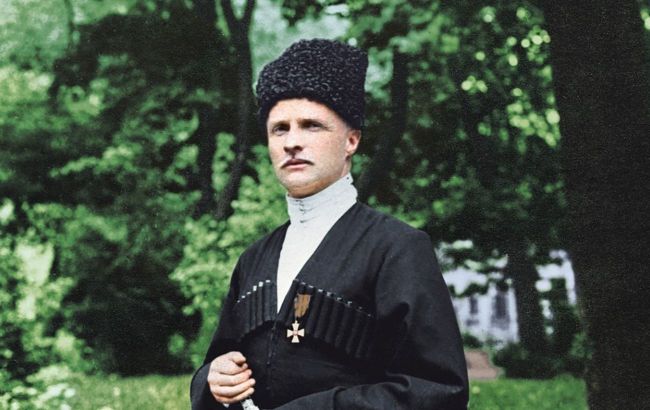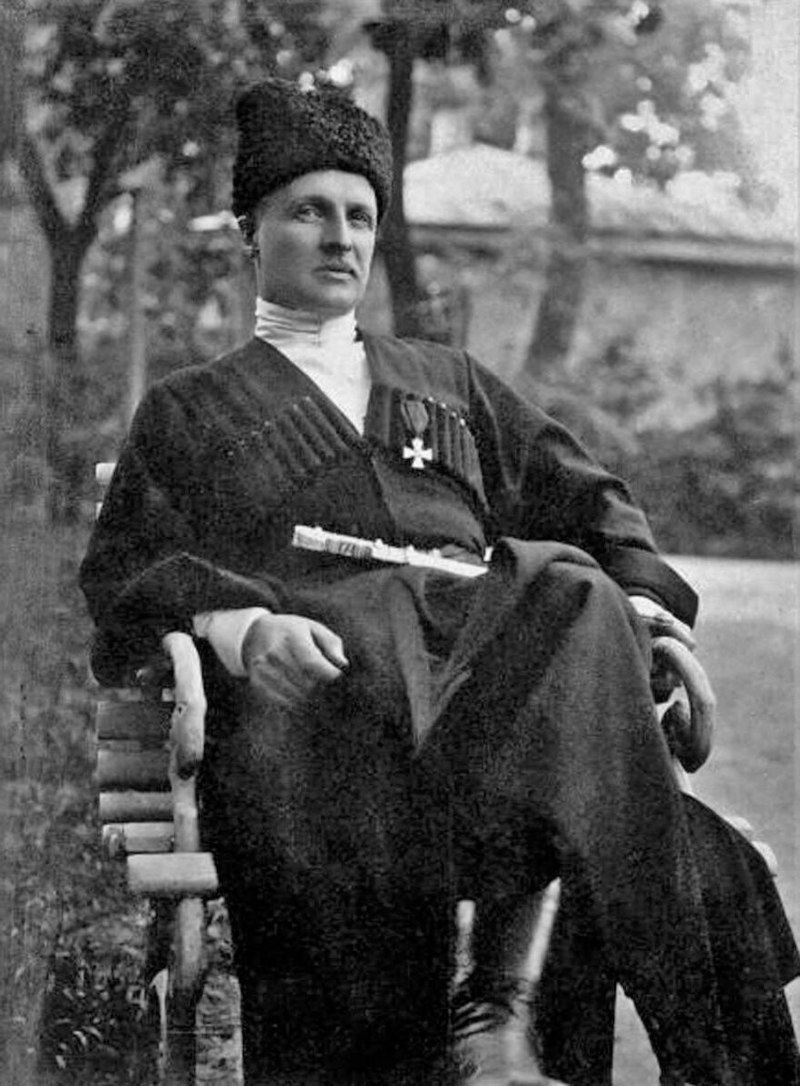Last hetman's dream: Pavlo Skoropadskyi's incomplete Ukrainian project
 Why Hetman Skoropadskyi’s Project Failed in 1918 (photo: Wikipedia)
Why Hetman Skoropadskyi’s Project Failed in 1918 (photo: Wikipedia)
Pavlo Skoropadskyi was the last Hetman of Ukraine, remembered as a man who tried to build a strong and modern state under extremely unfavorable conditions. His hetmanate lasted only eight months in 1918 but left a significant mark on the history of Ukrainian statehood. Here's what Skoropadskyi's "Ukrainian project" was, which reforms he introduced, and why his policies sparked controversy.
Who Pavlo Skoropadskyi was
He was born in 1873 into a wealthy Cossack officer family with long traditions of service. He received a military education, served in the Russian Imperial Guard, and participated in the Russo-Japanese War and World War I. By 1917, Skoropadskyi held the rank of lieutenant general.
In the fall of 1917, he commanded the 1st Ukrainian Corps within the former Tsarist army. However, he had already begun developing his vision for a Ukrainian state with strong authority, discipline, and a focus on Western models of governance.
Rise to power
On April 29, 1918, a state coup took place in Kyiv: with German military support, Skoropadskyi declared himself Hetman of all Ukraine. This put an end to the era of the Central Rada, which lost control over the state apparatus and the army..
Skoropadskyi declared that his goal was to establish order and create a stable state. However, his power depended from the start on the occupying German command, which became one of the main factors in his eventual defeat.
Hetman's 'Ukrainian project'
Skoropadskyi envisioned Ukraine as a state with a strong executive branch, support from the wealthy strata of society, and a modernized economy. His reforms affected key areas:
- Administration and army. He restored the civil service and attempted to create a regular army. He relied more on trained officers than on mass peasant mobilization.
- Economy. He sought to revive industry, restore railways, and attract foreign investment. He emphasized private property and the interests of large landowners, which caused peasant dissatisfaction.
- Agrarian policy. He canceled the radical land reform of the Central Rada. Land remained in the hands of landlords, alienating much of the peasantry.
- Education and culture. Skoropadskyi established several Ukrainian universities and research institutions. The Ukrainian State Universities were opened in Kyiv and Kamianets-Podilskyi. The Ukrainian Academy of Sciences was founded and headed by Volodymyr Vernadskyi. New schools, gymnasiums, publishing houses, and cultural societies were created.
- Foreign policy. The Hetmanate established diplomatic relations with over 10 countries, including Germany, Austria-Hungary, Bulgaria, Turkey, Switzerland, and Denmark. Negotiations were held with the U.S. and Great Britain.

Hetman Pavlo Skoropadskyi (photo: Wikipedia)
Why Skoropadskyi failed
Despite ambitious efforts, his rule lasted only until December 1918. Reasons included:
- Dependence on Germany, whose defeat in World War I deprived Skoropadskyi of his main support.
- Conflict with peasants over agrarian policy.
- Alienation from national-democratic forces, who saw the Hetmanate as a conservative and pro-Russian project.
- The rise of the anti-Hetman uprising, organized by the Directorate under Symon Petliura and Volodymyr Vynnychenko.
Russian chauvinist organizations in Ukraine (Union for the Revival of Russia, National Center, Union of State Unity of Russia, etc.) also negatively affected the internal situation.
According to Dmytro Doroshenko, they "instead of being grateful to the land that saved them from execution or starvation, burned with hatred toward Ukraine and made the capital a nest of intrigues, conspiracies, and plots aimed against the young Ukrainian state."
All these organizations acted as a united front against Ukrainian independence, condemned Skoropadskyi's "separatism," and viewed Ukraine as a temporary and unviable state.
On December 14, 1918, Skoropadskyi abdicated and moved to Germany, where he spent the rest of his life in exile.
Interesting facts
- Skoropadskyi dreamed of turning Kyiv into the "new capital of Eastern Europe" with universities and academies of European standard.
- Despite his reputation as a "pro-German Hetman," he sought to build a Ukrainian state with its own cultural identity.
- In exile, Skoropadsky maintained contacts with Ukrainian circles and wrote memoirs. He tried to influence political processes, but he never returned to power.
Skoropadskyi's legacy
Although Skoropadskyi's Hetmanate failed, his reforms in education and science laid the foundation for future development. The Ukrainian Academy of Sciences, founded during his rule, continued to exist after the Hetmanate's collapse.
He had a broad vision for the territory of the Ukrainian State, aiming to unite all lands where Ukrainians were the majority.
Crimea held a special place in his plans, seen as an integral and vital part of Ukraine.
His ambitions extended further. His government was actively negotiating with Kuban. That region was considered historically and ethnically linked to Ukrainian territory.
In 1918, a Kuban delegation led by Mykola Ryabovol, one of the leaders of the Kuban People's Republic, visited Kyiv. They discussed the idea of a federal union with the Ukrainian State.
However, this plan failed, mainly due to resistance from White Guard forces under General Anton Denikin, who saw Kuban as part of a future "united and indivisible Russia."
Skoropadskyi remains a controversial figure. For some, he was a conservative who did not understand the peasants; for others, a statesman who tried to modernize Ukraine and fit it into the European context.
You may be interested in:
- Which Ukrainian was famous across Europe even before the discovery of America
- Why Anna Yaroslavna is revered in France but largely unknown in Ukraine
Sources: Ukrainian Institute of National Memory, MSMB, Wikipedia.

